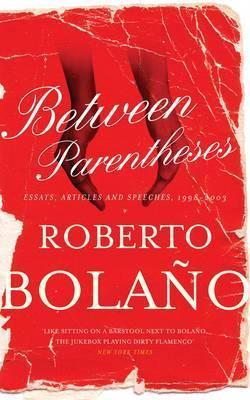What do you think?
Rate this book


400 pages, Paperback
First published June 1, 2004
So what is top-notch writing? The same thing it’s always been: the ability to peer into the darkness, to leap into the void, to know that literature is basically a dangerous undertaking. The ability to sprint along the edge of the precipice: to one side the bottomless abyss and to the other the faces you love, the smiling faces you love, and books and friends and food. And the ability to accept what you find, even though it may be heavier than the stones over the graves of all dead writers.Indeed.
It was that The Temple of Iconoclasts came into my hands, during a cold, wet winter, and I still remember the enormous pleasure it brought me, and the consolation, too, at a time when almost everything was full of sadness. Wilcock’s book restored happiness to me, as is only the case with those masterpieces of literature that are also masterpieces of black humor, like Lichtenberg’s Aphorisms or Sterne’s Tristram Shandy. Of course, Wilcock’s book tiptoed out of bookstores.One can gauge his grief for writers only few people read but he sticks to a misty hope that somehow, somewhere words in different forms survive and the readers like him carry them everywhere for the sake of restoring a lingering past, to dream about the invisible cities of a lost youth.

So what is too notch writing? The same thing it’s always been: ability to peer into the darkness, to leap into the void, to know that literature is basically a dangerous undertaking. The ability to sprint along the edge of the precipice: to one side the bottomless abyss and to the other the faces you love, the smiling faces you love, and books and friends and food. And the ability to accept what you find, even though it may be heavier than the stones over the graves of all dead writers.
The literature of the I, if extreme subjectivity, of course must and should exist. But if all writers were solipsists, literature would turn into the obligatory military service of the mini-me or into a river or autobiographies, memoirs, journals that would soon become a cesspit, and then, again, literature would cease to exist. …It goes without saying that if I had to choose between the solipsists and the bad boys of the literature of doom I’d take the latter. But only as a lesser evil.
There are some nice things - not many- about finishing a novel, and one of them is beginning to forget it, remembering a dream or a nightmare that gradually fades so that we can face new books, new days, without the constant reminder of what in all likelihood we could have done better and didn’t.
Savage Detectives almost forgotten by him so he can write something new. “I can venture a few thoughts about it. On the one hand I think I see it as a response, one of many, to Huckleberry Finn; the Mississippi of Savage Detectives is the flow of voices in the second part of the novel. It’s also the more or less faithful transcription of a segment of the life of the Mexican Poet Mario Santiago whose friend I was lucky enough to be. In this sense the novel tries to reflect a kind of generational defeat and also the happiness of a generation, a happiness that at times delineated courage and the limits of courage. To say that I’m permanently indebted to the work of Borges and Cortázar is obvious. I believe there are as many ways to read my novel as there are voices in it. It can be read as a deathbed lament. It can also be read as a game.
How to recognize a work of art? How to separate it, even if just for a moment, from its critical apparatus, its exegetes, its tireless plagiarizers, its belittlers, its final lonely fate? Easy. Let it be translated. Let its translator be far from brilliant. Rip pages from it at random. Leave it lying in an attic. If after all this a kid comes along and reads it, and after reading makes it his own, and is faithful to it (or unfaithful, whichever) and reinterprets it and accompanies it on its voyage to the edge, and both are enriched and the kid adds an ounce of value to its original value, then we have something before us, a machine or a book, capable of speaking to all human beings: not a plowed field but a mountain, not the image of a dark forest but the dark forest, not a flock of birds but the Nightingale.
9) The honest truth is that if we read Edgar Allan Poe that would be more than enough. 10) Consider that ninth point. Consider and reflect. It's not too late. You must consider point number nine. If possible: on your knees.